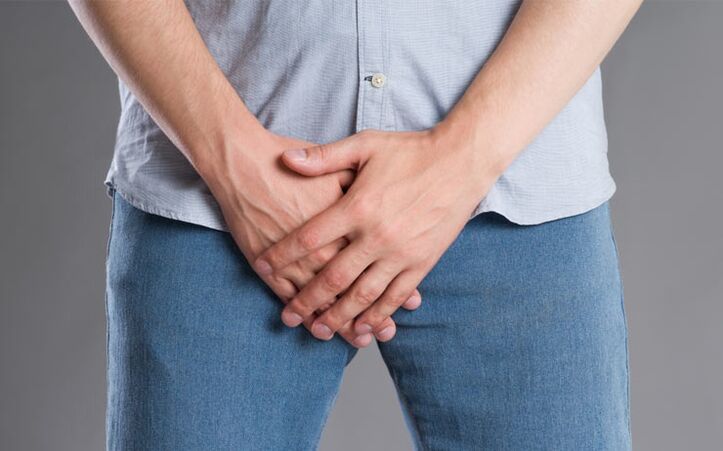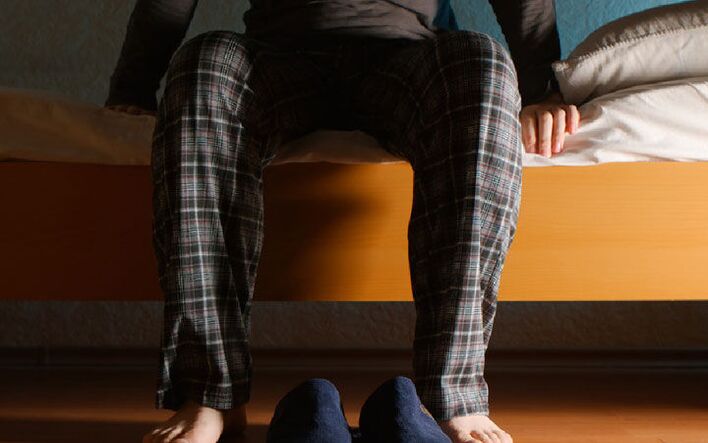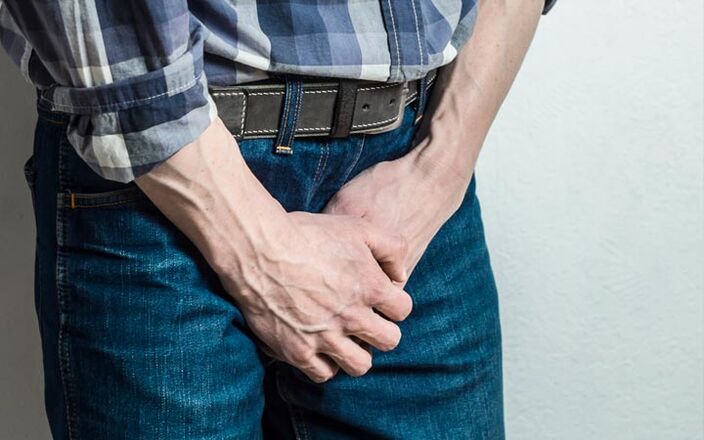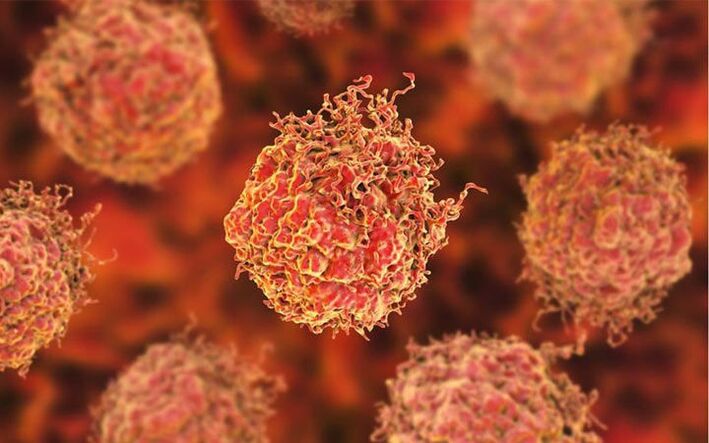
Prostatitis is a purely male disease of the prostate gland with an inflammatory nature.Most men are aware of the presence of such an organ as the prostate gland, but not everyone understands what role it plays in their body.Prostate iron is a small but important organ in the male reproductive system.It is located under the bladder and surrounds the upper part of the urethra.The prostate gland performs several functions.
SecretoryIt is the main prostate gland.It produces a secret, which is two -thirds of the fluid that is orgasm and guarantees the motor activity of sperm.This secret is a nutritional solution for male germ cells and contains everything necessary for their difficult journey to the egg - fructose for nutrition, water, sodium, potassium, zinc and magnesium minerals.
The engine functionIt consists in the ability of the prostate to hold urine due to smooth muscle fibers.And during ejaculation, it prevents sperm and urine from mixing.
Barrier functionIt consists in preventing pathogenic microorganisms when penetrating the lower urethra into the bladder and kidneys.
Prostate
The prostate gland, like any other organ, is vulnerable.Prostate disease is any medical problem found in the prostate gland.
These problems include:
- prostatitis;
- benign prostate hyperplasia (DHCH), also called prostate adenoma;
- prostate stones;
- Prostate cancer.
Types of prostatitis
Prostatitis is an inflammation of the prostate gland caused by infection or other causes.This is the most common cause of the premature disappearance of sexual functions.The treatment of prostatitis is determined by its type.There are 4 main types of this disease.Each has its own set of symptoms and causes.
- Acute bacterial prostatitis.
- Chronic bacterial prostatitis.
- Chronic non -bacterial prostatitis.
- Asymptomatic chronic prostatitis.
Acute bacterial prostatitis
A relatively rare type of prostatitis.This type of prostatitis is always associated with a bacterial attack of prostate tissue.It affects men of reproductive age from 35 to 50 years.Acute prostatitis is characterized by a sudden onset, an acute course with pronounced symptoms, leading to rapid worsening in the patient's condition.
Acute bacterial prostatitis is easier to identify than chronic due to its monotonous manifestations of the clinical picture.The reason is the penetration of pathogenic organisms into the prostate gland.These are the same bacteria that cause urinary tract infection and sexually transmitted diseases.These include the following pathogens:
- Escherichia Sticks (Escherichia Coli), which is always present on external genitals and is the pathogen of infections in most cases;
- Chlamydia and sexually transmitted mycoplasmas;
- Klebsiella and Pseudomonas Stick;
- Enterococci, Enterobacters;
- Gonococci.
Causes of acute bacterial prostatitis
In the prostate gland, these pathogens fall from the urethra through the exit ducts or from other adjacent organs: bladder, kidneys, rectum.Most of these microorganisms are conditionally pathogenic, that is, they live on the skin and mucous membranes of a person and there is no danger to it.
The immunity of a healthy person is strong enough to prevent the breed of microorganisms.Even the entry of the infection into the prostate gland can go unnoticed.In order for the infection to be proven in the form of bacterial prostatitis, provoking factors, so -called triggers are required.Namely:
- Reducing immunity due to a sedentary lifestyle, abuse of bad habits, prolonged antibiotic intake;
- hypothermia;
- many hours of stuck work;
- unstable sexual relations, the presence of chronic inflammatory diseases in a partner (bacterial vaginosis, chronic salpingiophoritis);
- prolonged sexual abstinence or excessive sexual activity;
- chronic foci of infection;
- Transferred sexually transmitted and urological infections;
- urethral surgery;
- constant stress, fatigue, lack of sleep;
- Disruption of the chair (constipation, diarrhea).
Symptoms

Acute prostatitis type is identified by the following signs:
- chills, fever, general malaise;
- Low pain, in the genital area, in the rectum, sometimes throughout the body;
- Frequent urination, especially at night;
- painful urination, low flow, burning, pungent odor of urine;
- blood in urine or semen;
- painful ejaculation;
Treatment of acute bacterial prostatitis
Urinary tract infection is confirmed by the presence of white blood cells and bacteria in the urine.
The course of therapy for acute bacterial prostatitis includes:
- Stationary mode;
- Diet;
- Complete rejection of alcohol and tobacco;
- Wide spectrum of antibiotics (ampicillins, cephalosporins, macrolides);
- Painkillers and anti -inflammatory drugs (intravenous or intramuscular);
- If necessary, decay with saline.
The duration of therapy is two to four weeks.
Complication
The acute form lasts no more than 1-2 months.If there was no cure during this time, then the disease would become chronic.The most frequent complication of acute prostatitis is the flow in chronic form.
The development of prostate abscess - focal purulent inflammation with fever up to 40 ° C
Chronic bacterial prostatitis
Chronic prostatitis, as a rule, occurs without pronounced characteristics.Unlike the acute form, which is characterized by general weakness, malaise, fever and pain in the inguinal region, with chronic bacterial prostatitis, the clinical picture is blurred, light.If, in acute form, poor health literally forces the patient to contact a urologist, then with chronic form everything is different.
The exacerbation of prostatitis is replaced by periods of remission, sometimes a very long time and a doctor's visit is delayed indefinitely.Very often the signs of prostatitis are perceived by a person as age inevitability and is not a reason to see a doctor.Without encountering obstacles in his path, the disease "blooms".
Symptoms of chronic bacterial prostatitis
- Far -a heartfelt urination, where the thread is felt.A weak stream appears only after a few attempts.
- There is a feeling of incomplete emptying of the bladder.
- Pulling pain in the lower abdomen, back, in the crotch.
- Weakens sexual desire.
- Sleep, attention is broken, apathy develops, headaches and bells in the ears can occur.
- Increased sweating is one of the atypical symptoms of this disease that you should pay attention to.

Complications
If you do not fight chronic prostatitis, you will need to deal with its much more serious consequences, which are poorly treated.Chronic prostatitis may have the following complications:
- cystitis;
- pyelonephritis;
- Orchoepididymitis (inflammation of the testes and their appendages);
- vesiculitis (inflammation of the seed bubbles);
- Erectile dysfunction, infertility.
Diagnostics and treatment
The treatment of chronic prostatitis is prescribed based on laboratory tests.These include:
- General blood test;
- three urine tests;
- Microbiological examination of urine;
- Prostate Prostate Ultrasound;
- Rectal finger examination;
- Microscopy and microbiological examination of prostate secretion;
- Microscopy of smears from the urethra to detect gonococci.
Prostatitis drugs in pathogenic flora and act on Gram -negative and gram -positive bacteria.The complex of therapy includes not only drug treatment but also physiotherapy.Treatment of prostatitis provides:
- antibacterial therapy;
- anti -inflammatory therapy;
- immunomodulatory therapy;
- physiotherapy;
- laser therapy;
- Physiotherapy Physical Education;
- Ozone therapy.
The duration of treatment is 8 to 12 weeks.
Chronic non -bacterial prostatitis
This type is also called pelvic pain syndrome.It is characterized by spasms of the pelvic floor muscles.There is a version of its neurological origin.
Symptoms of non -bacterial prostatitis type
- Pelvic and lower back pain, also during urination;
- Lomota in the joints and throughout the body;
- Discomfort and itching during sex;
- Gastrointestinal disorders.
Types of non -bacterial prostatitis
Chronic non -bacterial prostatitis has 2 forms: inflammatory and non -inflammatory.
The increased concentration of leukocytes and the increase in the settlement of red blood cells shows the inflammatory nature of the disease.
The non -inflammatory form is more difficult to diagnose.It is found after the patient's complaints about pelvic pain in sexual contact.
Causes of non -bacterial chronic prostatitis
- unbalanced, monotonous diet;
- A sedentary lifestyle;
- irregular sex life;
- genetic predisposition;
- penis trauma;
- Diffuse changes in the prostate gland.
In this type of prostatitis, a large number of inflammatory cells are detected in the secretion of the prostate gland, but there is no infection of the urogenital tract in the history of the disease.
Diagnostics and treatment
In order to diagnose an abacus type, the following indications are required:
- urine analysis;
- General blood test;
- urine sowing to identify microorganisms;
- Prostate ultrasound;
- CT and MRI;
- Bacterial smear.
Treatment of abacus prostatitis
Antibiotics are sometimes effective, even when there are no signs of bacteria in the tests.For this reason, they are also often prescribed as the first stage of treatment of chronic non -bacterial prostatitis.The purpose of the alpha blockers helps to relax the tissues of the smooth muscles of the prostate gland and the neck of the bladder.
Non -steroidal anti -inflammatory drugs help relieve pain and fever.This can be prostatitis candles.
Regular prostate massage performed by a doctor can help drain the fluid from the inflamed prostate gland and reduce pressure.
Asymptomatic chronic prostatitis
Small, asymptomatic and therefore the most dangerous species.As a rule, it is accidentally found during a view.
Symptoms based on research results
- increased levels of PSA (prostatic specific antigen);
- Leukocytes in the urine.
Complications of asymptomatic prostatitis - adenoma and prostate cancer.

Medicine for prostatitis of the asymptomatic form is chosen depending on the etiology of the disease.In infection, the disease is treated with antibiotics or antiviral agents.And if the cause of the disease is not in the bacteria, then the doctor may be limited to prescribing ultrasound or massage.
Treatment of prostatitis with folk remedies
It is necessary to approach the treatment of prostatitis individually and necessarily exhaustively.
- Medicinal mixture.
To prepare a miracle -mix, you will need:- fresh cucumber;
- Beetroot is a dining room (red);
- Carrot.
From these vegetables it is necessary to drain the juice and mix in equal parts.Drink 3 times a day 100 ml half an hour before meals.We advise, in parallel with the intake of the mixture, to use propolis candles.Enter the rectum at night.
- Spirulin.
Buy Spirulina powder at a pharmacy and add to cranberry juice, mix well.100 ml.Juice 2 g powder.Drink the resulting mixture during the day.
The course of treatment is 7 days, then 3 days rest and repetition again.For a positive effect, 3-4 such courses should be passed. - Mixture of lobasular and honey.
Grind the raw tubers of a simple honey label.Take the resulting mixture twice a day (morning and evening) for 1 tsp. - A mixture of parsley and honey.
It is necessary to remove the juice from the parsley and mix in the same proportion with honey.The resulting mixture is taken 3 times a day for 2 tbsp.
Prevention of prostatitis
The old kind truth that prevention is the best treatment has established itself as best as possible in terms of prostatitis.In the end, prostatitis is facilitated by violating the elementary rules of a healthy lifestyle.Lack of sleep, unbalanced nutrition, mismatch with hygiene, rejection of sports, motor activity, smoking, alcohol - this is the right path to inflammation of the prostate gland.In order not to experience all the problems with which he "rewards" men prostatitis, it is enough to take the following preventive measures:
- Do not abuse alcohol and abandon smoking.According to doctors, smoking is the main cause of blood stagnation in the pelvis;
- Gymnastics and exercise are useful, especially for strengthening the pelvic muscles.The improvement works perfectly on the health of the prostate gland and preserves potency to maturity;
- Food should consist of products rich in vitamins, minerals, fiber.Particularly useful for zinc prostate.There are many of it in cedar nuts and sunflower seeds.It is better to abandon fried and oily food;
- Drink very clean water (2L);
- In the cold season, use warm bedding;
- Check your doctor once a year.
All these points are quite simple and they are turned against prostatitis - an insidious disease that is masked for old age, impotence and can lead to consequences to life.























